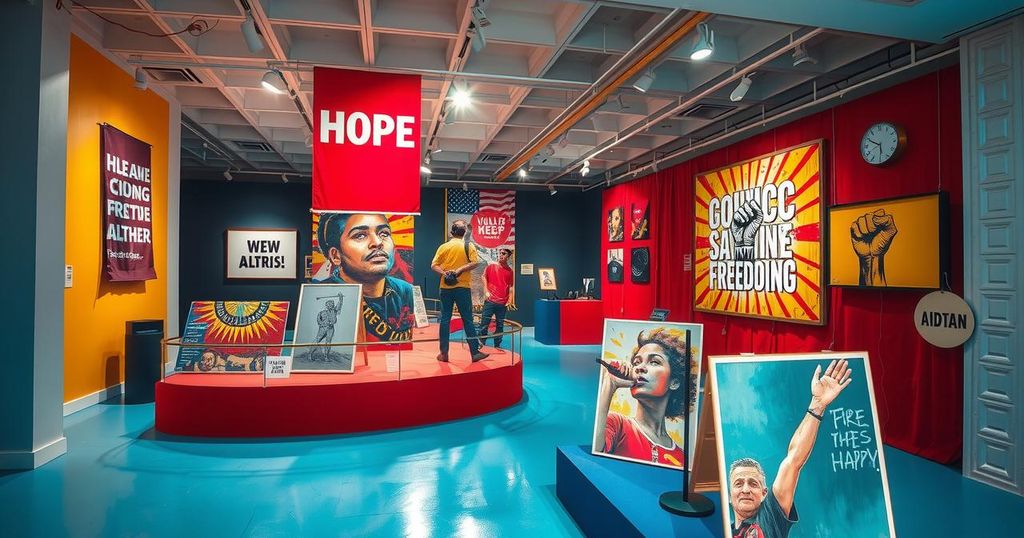Iran Protests Continue Amid Economic Hardship and Human Rights Abuses

Protests intensifying in Iran highlight public discontent over failing government policies. International exhibitions are condemning human rights abuses, while significant legal battles are being brewed regarding alleged espionage. Rising crime reflects systemic issues within the country. The regime’s repressive measures appear to be a strategy for maintaining control amidst growing unrest.
Fast Summary
Protests across Iran have intensified recently, with retirees, workers, and citizens expressing their discontent over the government’s failing policies. Exhibitions in Europe are emphasizing the regime’s human rights violations, while a trial for three Iranian spies in the UK has been scheduled. Public insecurity in Iran is at an all-time high, with violent crimes reflecting systemic issues in governance. The Iranian regime is also reportedly applying repressive measures selectively to maintain control.
Article Body
In late May and early June 2025, cities all over Iran witnessed protests as various groups, including retirees and workers, took to the streets. Their rallies were largely a reaction to what they see as the regime’s failure to address economic hardship and rampant corruption. These ongoing demonstrations reflect a strong resolve among the Iranian populace to fight for their rights against considerable oppression from the state.
On June 6, in Zahedan — a city notorious for its intense government surveillance and oppressive security measures — resistance units staged bold acts of defiance. These protests come amid the regime’s gruesome tactic of daily executions intended to intimidate the Baluch community. Activists are pointing to the increasing death sentences for supporters of the People’s Mojahedin Organization of Iran (PMOI/MEK) as evidence of the heightened risk these protests entail.
In Bucharest, Romania, on June 7, PMOI supporters launched an exhibition to spotlight the Iranian regime’s rising human rights abuses, such as death sentences against political prisoners. Similarly, in Rostock, Germany, another exhibition was held featuring calls for the release of political prisoners and the prosecution of Iranian leaders for crimes against humanity at an international court. Berlin and Bern also hosted similar events the same week, amplifying the call for accountability and global support against the Iranian regime.
Turning to the UK, a preliminary hearing at the Old Bailey court has revealed that three Iranian nationals face trial in October 2026 for supposedly spying for Tehran’s intelligence agency. Defense attorneys have indicated their clients—Mostafa Sepahvand, Farhad Javadi Manesh, and Shapur Ghaleh Alikhani Noori—plan to plead “not guilty” to all charges. This case has attracted attention given the tense geopolitical backdrop.
Meanwhile, rising crime rates in Iran are causing concern, illustrated by the violent murders of Amir Mohammad Khaleghi and Elaheh Hosseinnejad earlier this year. These tragic incidents have resonated deeply with the Iranian public as they highlight a broader issue of failing public security, stemming from economic woes and systemic government failures that fuel desperation.
Analysts note that the Iranian regime’s repression is part of a calculated regional strategy. Their approach appears to involve testing measures in specific areas before applying them more widely, creating a phased system of control that complicates opposition efforts.
Lastly, a cautionary voice has emerged from activist circles. Fereshteh, a tech researcher from Tehran, has raised alarm about the potential for the Iranian regime to use nuclear weapons against its adversaries. After losing her sister to brutal regime actions, she became actively involved in resistance efforts, noting that numerous units are forming nationwide to challenge the regime’s authority.
Conclusion
The situation in Iran is increasingly tense, both on the streets of its cities and in international arenas. Protests reflect a deep-seated dissatisfaction with the regime, and exhibitions worldwide are trying to bring light to the serious human rights violations occurring within the country. With trials underway and public safety spiraling, the Iranian regime’s strategies may face mounting challenges from an empowered populace determined to seek change.
In summary, the current state of affairs in Iran showcases ongoing protests against government policies and serious human rights abuses. Events across Europe highlight international concerns regarding Iran’s treatment of political prisoners. As crime rates rise and public dissatisfaction grows, the regime’s strategies may face escalating opposition from its own citizens seeking reform. The impending trials in the UK further complicate the regime’s standing on the world stage.
Original Source: www.ncr-iran.org






